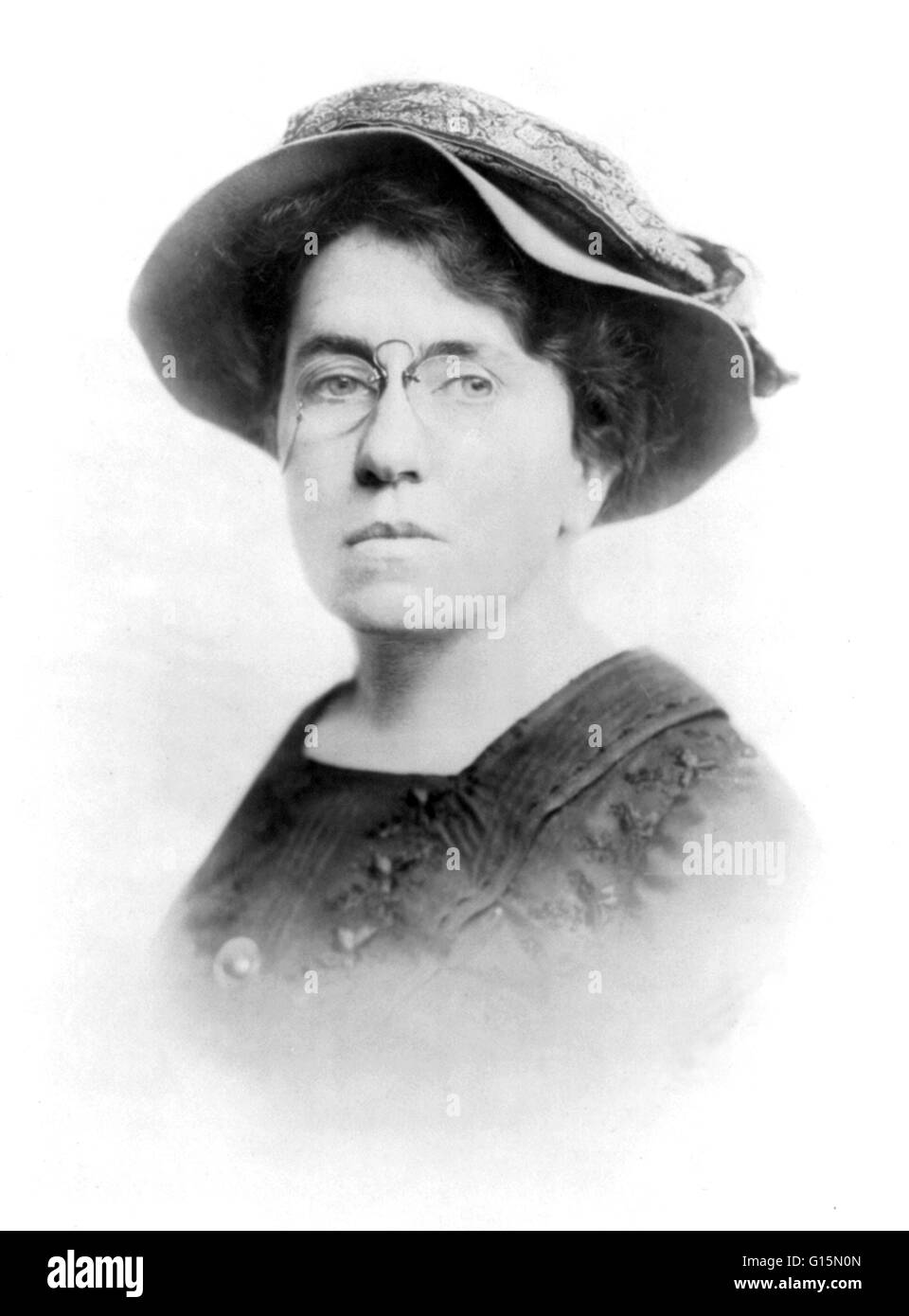Emma Goldman (June 27, 1869 - May 14, 1940) was an anarchist known for her political activism, writing, and speeches. Born in the Russian Empire (now Lithuania) she emigrated to the United States in 1885 and lived in New York City. Attracted to anarchism

Image details
Contributor:
Science History Images / Alamy Stock PhotoImage ID:
G15N0NFile size:
42.2 MB (517 KB Compressed download)Releases:
Model - no | Property - noDo I need a release?Dimensions:
3300 x 4467 px | 27.9 x 37.8 cm | 11 x 14.9 inches | 300dpiPhotographer:
Photo ResearchersMore information:
This image could have imperfections as it’s either historical or reportage.
Emma Goldman (June 27, 1869 - May 14, 1940) was an anarchist known for her political activism, writing, and speeches. Born in the Russian Empire (now Lithuania) she emigrated to the United States in 1885 and lived in New York City. Attracted to anarchism after the Haymarket affair, she became a writer and a renowned lecturer on anarchist philosophy, women's rights, and social issues, attracting crowds of thousands. In 1892, she and Alexander Berkman, her lover and lifelong friend, were unsuccessful in their attempt to assassinate industrialist and financier Henry Clay Frick. Berkman was sentenced to twenty-two years in prison. Goldman served prison and jail terms for such activities as advising the unemployed to take bread if their pleas for food were not answered, for giving information in a lecture on birth control, for opposing military conscription, and in 1908 she was deprived of her citizenship. In 1917, Goldman and Berkman were sentenced to two years in jail for conspiring to induce men not to register for the newly instated draft. After their release from prison, they were re-arrested and deported to Russia. Goldman quickly voiced her opposition to the Soviet use of violence and the repression of independent voices. She left the country in 1921 and two years later wrote a book about her experiences, My Disillusionment in Russia. She obtained British citizenship through marrying the Welshman James Colton, and traveled through many nations giving lectures. She spent her final years aiding the anti-Franco forces in Spain through lecturing and fund-raising. Succumbing to a stroke and its effects, she died in Canada in 1940 at the age of 70. She was buried in Chicago, near the graves of the Haymarket anarchists.